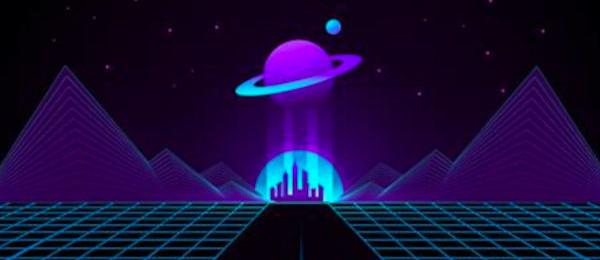Dawn of the DAWs
A Gentle Introduction to Decentralized Autonomous Worlds

Prologue:
While writing my first #EthWriters essay, The State of Play on Ethereum, I came across the term Decentralized Autonomous Worlds when describing the game Dark Forest, a MMO space-conquest game where players discover and conquer planets in an infinite, procedurally-generated, cryptographically-specified universe. DAWs don't necessarily need to be a "game" but for the sake of making a complex subject easier to understand that's where this article will focus. Also, games are usually more ‘low stake’ and easier to play with new tech. This is also where most development in DAWs is happening. If blockchains are the wild west DAWs are the somewhere out on the edge.
WTF is a DAW
A DAW, short for Decentralized Autonomous World, can be described as a permission-less and persistent system that runs independently of its creators. An open ecosystem that anyone can build on without the need for a centralized authority. While the concept is still being iterated on, a handful of game developers have started to lay the groundwork. By putting most if not all logic on-chain DAWs are pushing blockchains to their current scaling limits while also pushing the design space of blockchains out of just financial applications.
DAWs make use of the blockchain’s unique properties to achieve some similarly unique properties themselves. Such as being always "on" and running independently of their creators. They use the blockchain as the source of truth for the data and live primarily on-chain, taking full advantage of blockchains permissionless interoperability while unlocking fundamentally new game mechanics in dapp development.
It's a worlds world out there
A DAWs "worlds" logic is implemented via smart contracts with near-open interfaces so others can come and build their own world within the DAW, worlds within worlds. These new inner worlds can integrate and extend the original DAW, live independently or co-mingle with the whole of the ecosystem. If we extend the metaphor this would make the blockchain that these world live in the universe. These interoperable, composable worlds take a lot of the good ideas from those of the metaverse but build on the technical road map in many ways.
Challenges with immutability
While the immutable property of DAWs is a key factor for longevity and interoperability this does present upgrading issues. Some solutions can include ways to allow these systems to evolve through DAO governance, forking or simply launching a new version that could borrow state from the previous version.
Pushing the boundaries of decentralization
Along with some of the good properties DAWs inherit from BCs come some of their challenges as well. Sybil attacks and collusion to name a couple along with the big one privacy. NFT access and reputation systems can alleviate some issues around bots and Sybil attacks but how to keep certain game logic or players' actions obscure when needed? Here ZKProofs, commit-reveal, and other clever mechanisms are key in producing a "fog of war" type gameplay or something as simple as a poker game where players can't see what card the other players hold.
Conclusions
Aside from being one of the more ambitious ideas in crypto the playful exploration and rapid iteration of projects building in this space give DAWs potential for new discoveries in blockchain dapp designs as well as games in general. In many ways, DAWs are modeled similarly to our own "real" world. they can be chaotic and subjective with no central authority. DAWs are a world where independent sovereign agents can make their own rules. An infinite digital inner space just waiting to be discovered. Exploration and the sense of wonder is one of the key things that make us human and it's these traits I see most reflected in these DAWs. In my first essay on gaming in crypto I jokingly said Vitalik invented Ethereum to spoil the evil centralized online gaming world, DAWs running on Ethereum may do that and more.